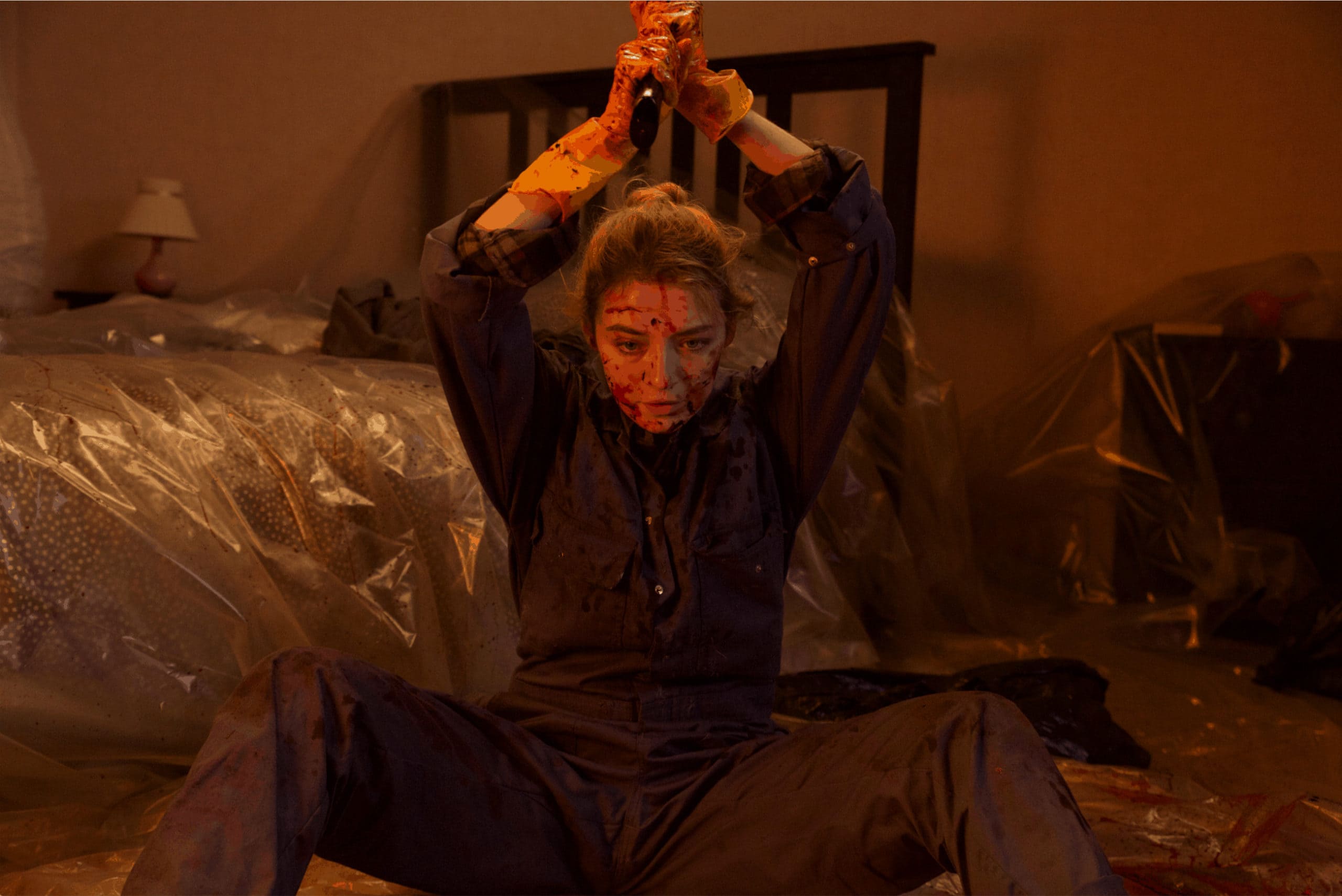

“Let sleeping dogs lie,” says the policewoman behind the reception desk, having worked out that she’s speaking to a widow, and not the wife of criminal. Whether Sarah (Sarah Bolger) would if she could, she’s not able to find out, because the wolves that circle her flat keep coming in.
An atmosphere of bleak inevitability hangs over Abner Pastoll’s bare, brutal third feature. The very first frame—a close-up on Sarah, blood-flecked and breathless—signals the coming of a brutal event, but it’s the smaller, accumulated brutalities that build tension like gathering clouds.


Unsupported and isolated in the wake of her husband’s death, everyday situations turn sour on a sixpence against a colour palette of sickly yellows and greens. A benevolent smile at the supermarket turns into a sexual solicitation, a broken window becomes an excuse for two policemen to push their way into her flat and pick from her children’s dinner plates, a return home from a walk coincides with the arrival of Tito (Andrew Simpson), a drug dealer looking for somewhere to stash his stolen merchandise.
Although the film leans more towards revenge thriller than kitchen-sink drama, writer Ronan Blaney interweaves some smart social commentary into an otherwise action-driven plot. It’s a mistake to misjudge Sarah, and yet she’s misjudged at every turn.

There’s the child psychologist who believes it necessary to define ‘metaphor’, the social worker who finds a simpler word for ‘unkempt’, the policeman who tells her to get it together for her family, gravely misunderstanding the scene he’s walked in on. It takes very little—unbrushed hair, a tired, makeup-less face, unwashed plates—for those in positions of power to judge a young, single mother as irresponsible and incapable.
And yet, to protect her children and find out what really happened to her husband, Sarah is capable of much more than even she knows. In the central role, Bolger vibrates with quiet rage. The spare script and tight framing make for a claustrophobic portrait of a woman backed into a corner by circumstance, whose grief and tiredness and fear is perceptible only in the minute movements of her face, a single tear that spills over. When she’s forced to make a horrific choice, the sound design renders her primal scream silent beneath the strobing synths of Makeup and Vanity Set’s menacing score.

Although the plot veers in and out of the realm of plausibility—there’s a set-up with a knife and a vibrator that feels a little convenient and the metaphor-loving gang leader Miller strays too often into caricature—Sarah’s steely-eyed determination to protect her family at any cost is made believable in Bolger’s hands.
In the climactic scenes, Sarah reconfigures herself as an active participant in her story, refusing to be anyone’s victim any longer. Plausible or not, her transformation into gun-wielding quasi-femme fatale, the sickly lighting momentarily swapped for angelic illumination as she prepares for a final showdown, is grimly satisfying.




